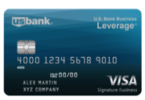Update 2/22/19: This settlement has now been approved by a court.
Original post: Visa, Mastercard and a number of U.S. Banks (JP Morgan Chase & Co, Citigroup, Bank of America among others) have agreed to pay a $6.2 settlement to end a lawsuit over swipe fees. The lawsuit alleged that these credit card companies violated federal antitrust laws by forcing merchants to pay swipe fees and preventing them from directing/steering customers towards other methods of payment such as cash or debit card.
This lawsuit has a long history:
- The law suit was first brought forward 13 years ago
- In 2012 a settlement for $5.7 billion was approved and then overturned on appeal in 2013
- In 2016 a settlement of $7.25 billion settlement was approved and then out by a federal appeals court in 2016.
This new $6.2 billion settlement still needs to be approved by a court. Earlier lawsuits were denied as it was found that some retailers would receive little or no benefit, there was also a worry that it would limit there ability to bring future lawsuits of this nature forward. A lot of the larger merchants have opted out of this settlement, include Walmart, Target and Kroger. These retailers believe they will be able to negotiate a better deal for themselves.







Do debit cards incur significantly lower processing fees for merchants?
Some small merchants don’t even accept debit cards for transactions less than $10.
Yes, they’re generally much lower (think ~1% instead of ~2.5%)
Thanks for the info!
🙂
Click the link folks… this is a settlement for merchants using Visa/MC since 2004.
What’s in it for me? Do i need to submit a claim via top class action website?
For you: You’ll now get the right to use your debit card as a credit card with no added fees, but pay 10+30% additional “merchant fee” to use a rewards card of any kind. Consider it the Apple pay fee model for all credit cards.
How much are we getting?
Is this related to the lawsuit about merchant swipe fees for high earning rewards cards?
Because that lawsuit sounded scary; merchants want to be able to discriminate against certain cards on the same network.
Example: merchant is sick of paying high swipe fees for Chase Sapphire Reserve, so they hard code their registers to decline all CSRs, but Chase Freedom swipes just fine.
Yes.
The only winners are the $500 an hour lawyers (on both sides).
Seriously. They don’t mind that never ending gravy train.
When billions of dollars at stake paying a some lawyers to work the case to minimize damage makes a lot of sense.
$500/h is too low for corporate lawyers.
Agreed that’s just the Corp white shoe paralegals hourly rate.
Looks like they just dragging it longer so they don’t really have to pay anything lol
Well you’re not entirely wrong… If the companies all put aside their part of the 5.7 Billion at the time, but didn’t pay it, the relative worh is now over 7 billion, much more than 6.2B. That’s without factoring in them making money on that 5.7B in the intervening 13 years.